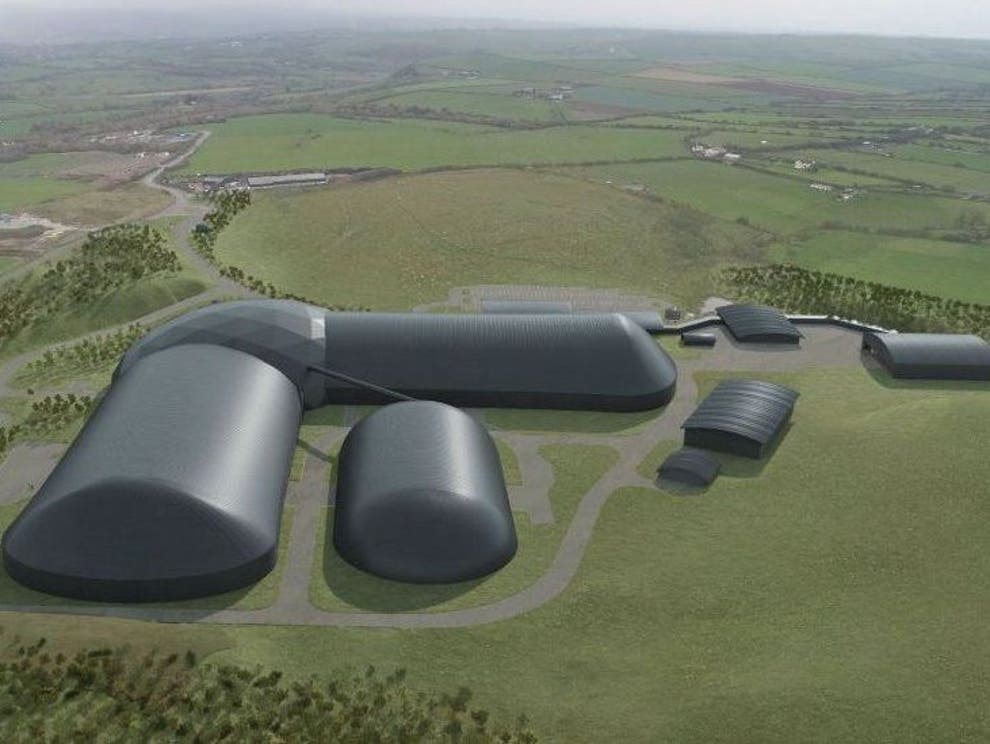‘Very compelling reasons’ to block controversial Cumbria coal mine, says business secretary
Amid international pressure ahead of UN climate summit, government indicates cooling enthusiasm for project

Your support helps us to tell the story
From reproductive rights to climate change to Big Tech, The Independent is on the ground when the story is developing. Whether it's investigating the financials of Elon Musk's pro-Trump PAC or producing our latest documentary, 'The A Word', which shines a light on the American women fighting for reproductive rights, we know how important it is to parse out the facts from the messaging.
At such a critical moment in US history, we need reporters on the ground. Your donation allows us to keep sending journalists to speak to both sides of the story.
The Independent is trusted by Americans across the entire political spectrum. And unlike many other quality news outlets, we choose not to lock Americans out of our reporting and analysis with paywalls. We believe quality journalism should be available to everyone, paid for by those who can afford it.
Your support makes all the difference.The business secretary, Kwasi Kwarteng, has said there are “very compelling reasons” why a planned new coal mine on the Cumbrian coast should not go ahead.
A public inquiry into the controversial Woodhouse Colliery was announced last week, after growing anger over the expected impact of the mine, which will be used to extract coking coal for the steel industry, and export as much as 80 per cent of it to Europe.
On BBC Radio 4’s Today programme, Mr Kwarteng was asked why the government was not stepping in to stop the construction of the mine – which would be the first deep mine in the UK for 30 years. He said: “Essentially what we’ve done is pretty much that. We’re looking at it; it is part of a planning process.”
The communities secretary, Robert Jenrick, had twice declined to call in the plans for review, but amid international pressure ahead of the UK’s hosting of the UN’s Cop26 climate summit in Glasgow in November, the government changed tack.
The US climate envoy, John Kerry, warned the UK that “coal has no future” during a European tour last week to drum up momentum for the summit.
Mr Jenrick claimed the government’s U-turn with the announcement of the public inquiry had been prompted by new information about the extent of the emissions the mine would produce over its lifetime. He said the development was of “more than local importance” and that he would take the decision on its future out of the hands of the local authority.
Read more:
Mr Kwarteng’s response is the strongest sign yet that the government may decide the mine cannot go ahead.
He said: “Initially, I think the relevant secretary of state [Mr Jenrick] said he wouldn’t go against the local planning decision, but he is now looking at that again and I think there were very compelling reasons to do as the CCC [Climate Change Committee] suggested and not open the mine.”
Pressed on whether he was saying it should not open, he said: “What I said was that we’re going through a process – it is a legal process, a local planning process, and the secretary of state for local government is reviewing that situation.”
Mr Kwarteng’s cool attitude towards the mine came immediately after former Bank of England governor Mark Carney said the development did not fit in with the “overall objective” of tackling the climate crisis by significantly reducing greenhouse gas emissions.
Mr Carney said: “I can’t quite reconcile it with the overall objective, at least in my head.
“It’s a decision for the government, but I think the standard by which major investments should be judged, one of the standards, is whether they are concerned with the objective to get to net zero, not just on the 2050 horizon but a nearer-term horizon.”
The government’s faltering stance on the mine has been seized upon by campaigners who warn that the development would undermine the UK’s hosting of Cop26.
Friends of the Earth climate campaigner Tony Bosworth said: “Kwasi Kwarteng’s comments are the strongest indication yet of real opposition at the heart of government to the Cumbria coal mine.
“This mine will increase global emissions and severely damage the UK’s credibility ahead of hosting vital climate talks later this year.
“The government must reject this climate-wrecking mine and help the UK steel industry move to zero-carbon-production technology – which will cut emissions and generate green jobs.”
Dr Doug Parr, policy director at Greenpeace UK, said: “We completely agree with the secretary of state on this. There were indeed very compelling reasons for not having the coal mine in the first place, so why did the government allow the process to carry on? Not only would it signal an increase in planet-heating emissions from the UK just when we’re trying to cut them, but it will also tarnish the government’s credibility as the host of an absolutely crucial climate summit.
“Ministers should not allow this blunder to cause further damage to Britain’s standing as the Cop26 host. They should put the issue to bed as soon as possible by stopping the coal mine and unleashing a major push in clean technologies.”
Additional reporting by agencies
Join our commenting forum
Join thought-provoking conversations, follow other Independent readers and see their replies
Comments